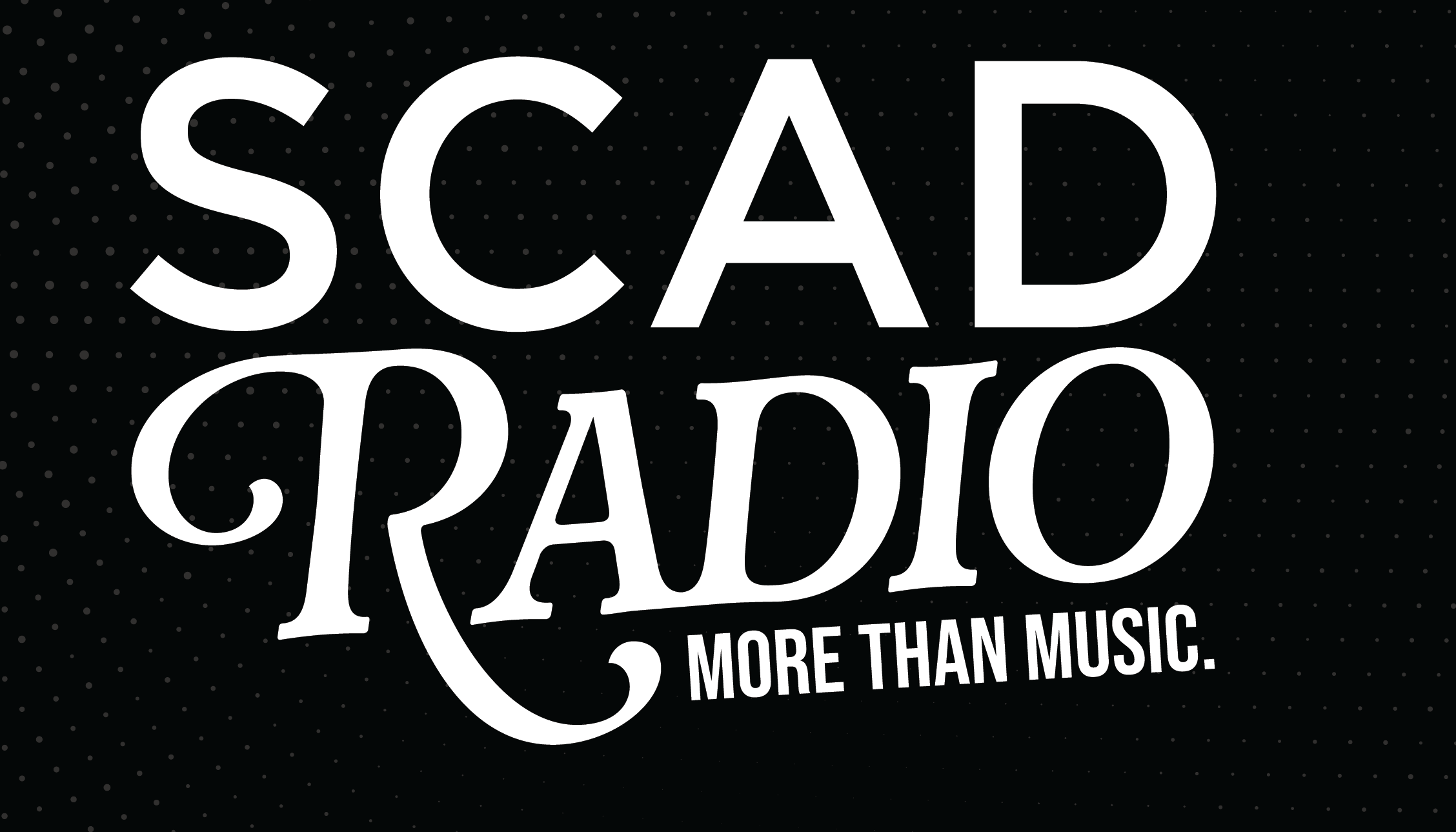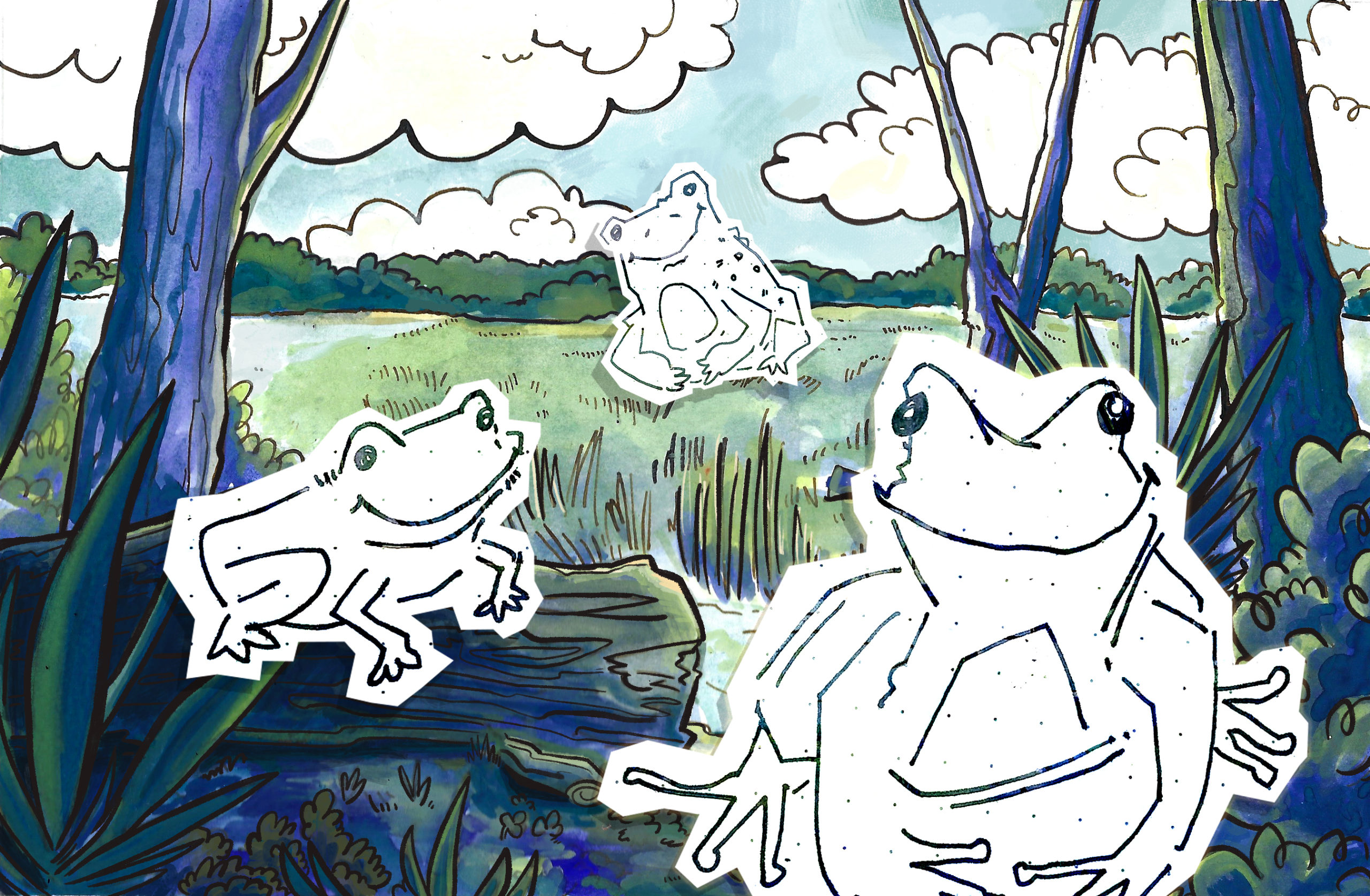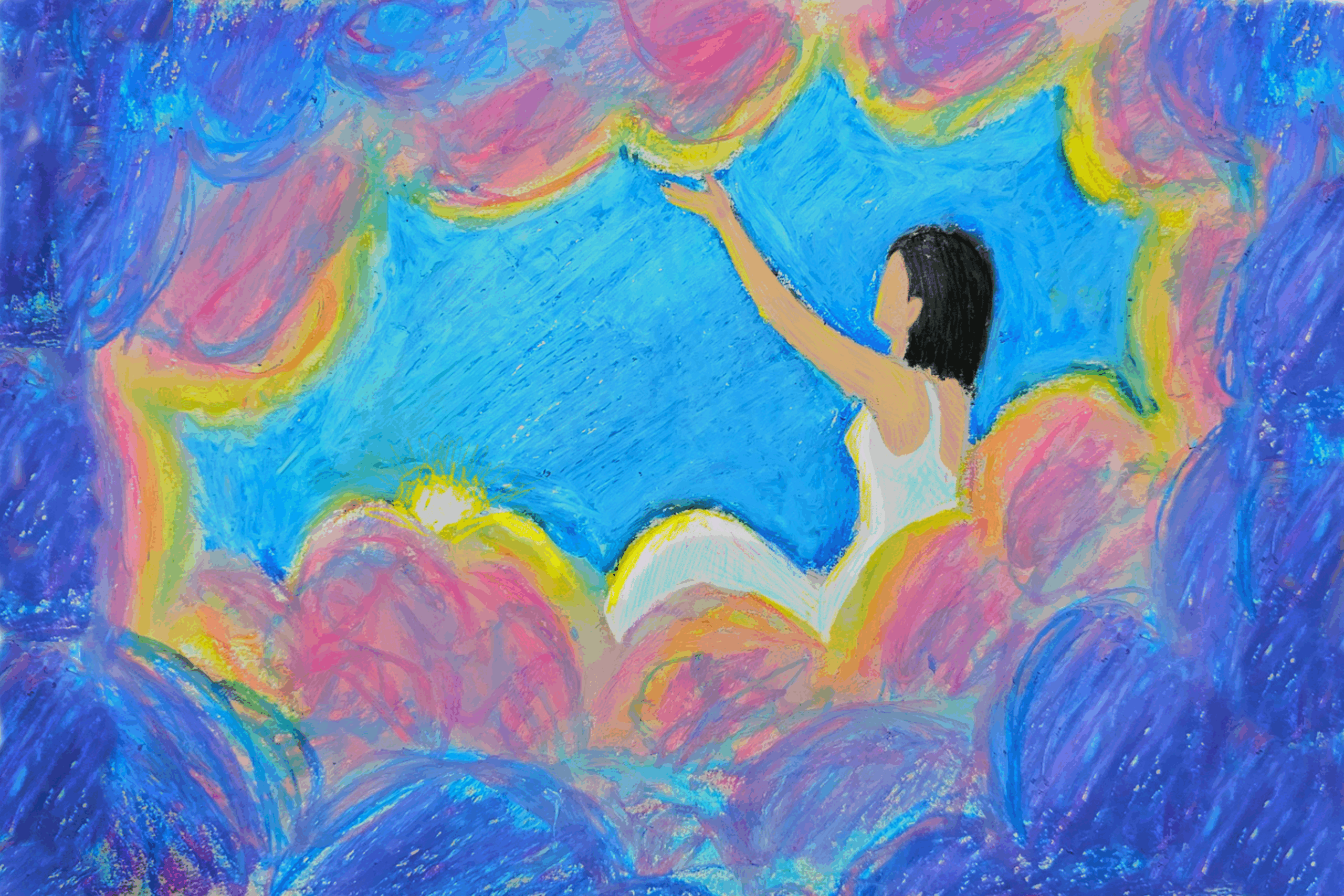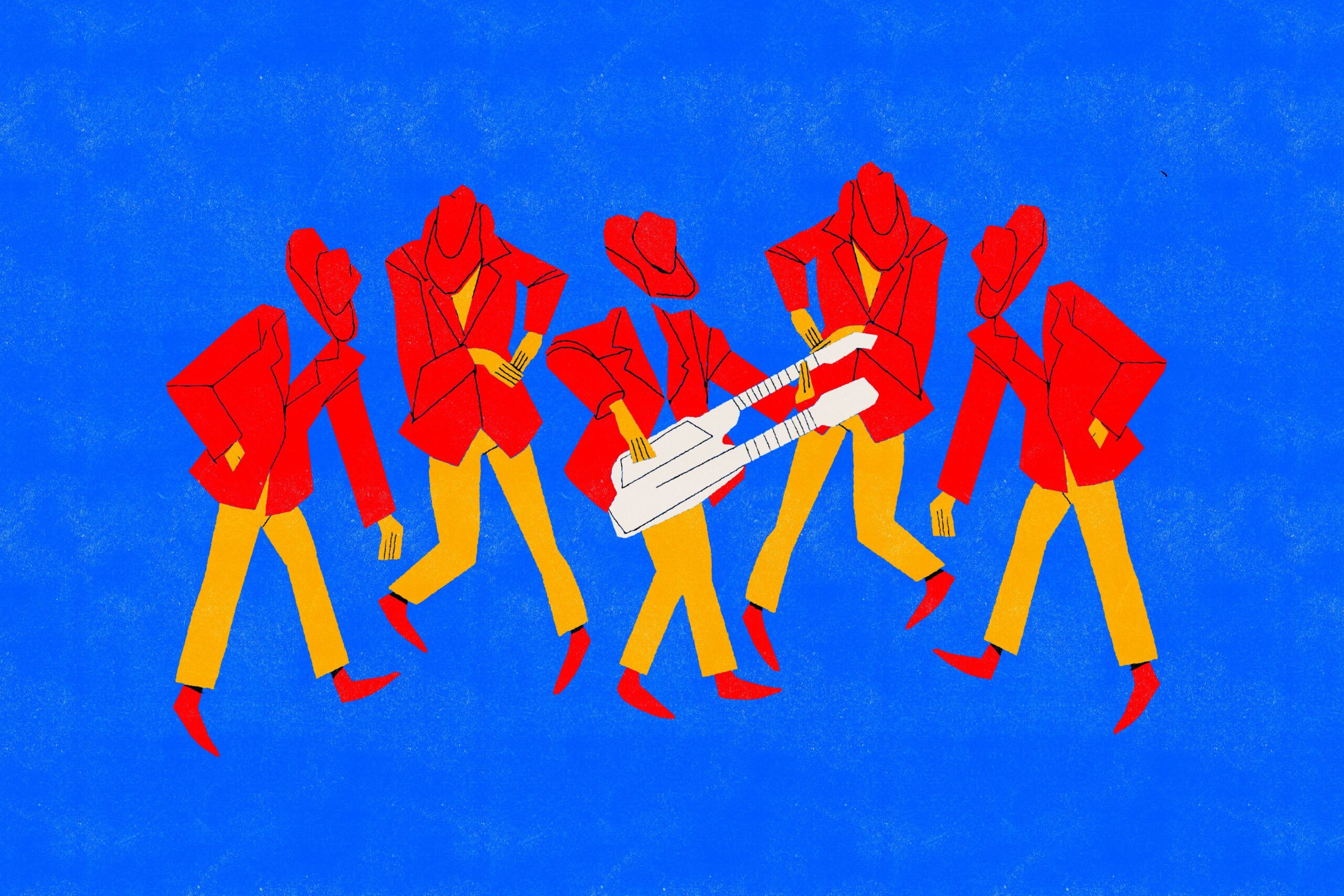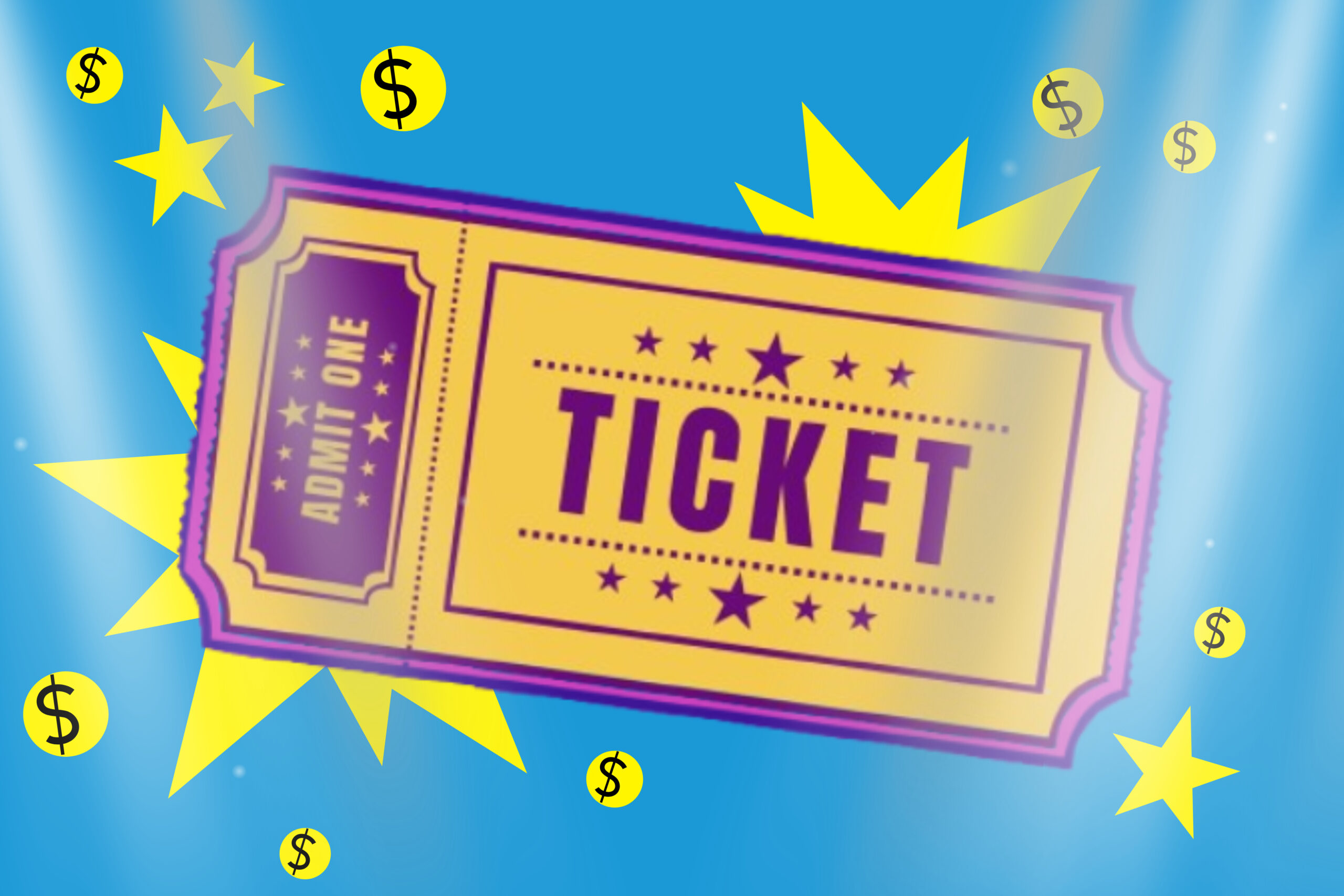In November of 2021, I sent out an email on a whim to the band Frog because I had some questions about their latest record, Count Bateman. Danny Bateman was kind enough to make time to chat with me–our conversation is transcribed below. Check out Frog’s music here. Listen to the interview below.
SCAD Radio : I guess just to get us started, could you introduce yourself and give us a brief description of Frog?
Danny Bateman of Frog : Hi, my name is Danny Bateman. I have a band called Frog that has been around for I guess around 8 or 9 years in different incarnations. It started out as a duo of me and my friend Tom White. I had him learn drums so that he could play drums while I play guitar, and we were loud and had fun. And that was really what our first album was–us being loud and having fun and figuring out how to record ourselves. Then it sort of became this little odyssey that we went on trying to find interesting things that were happening between the two of us. And that was really fun. We played a lot of shows in the New York area–we’re from New York. And then around the time of that album, Tom moved to England–he’s since moved back–but I had to figure out what to do after that, and I just kept the band going (laughs). Now, in this new incarnation, the latest one that I’m recording with and playing with, is me and my brother Steve. He still had to learn drums to play in the band. I’m not really good at finding great musicians–I just find people that I love, and then I make them play the drums (both laugh). That’s my current working framework. But Steve has been incredible, and the music we’re making is just unbelievable, I’m so excited about it.
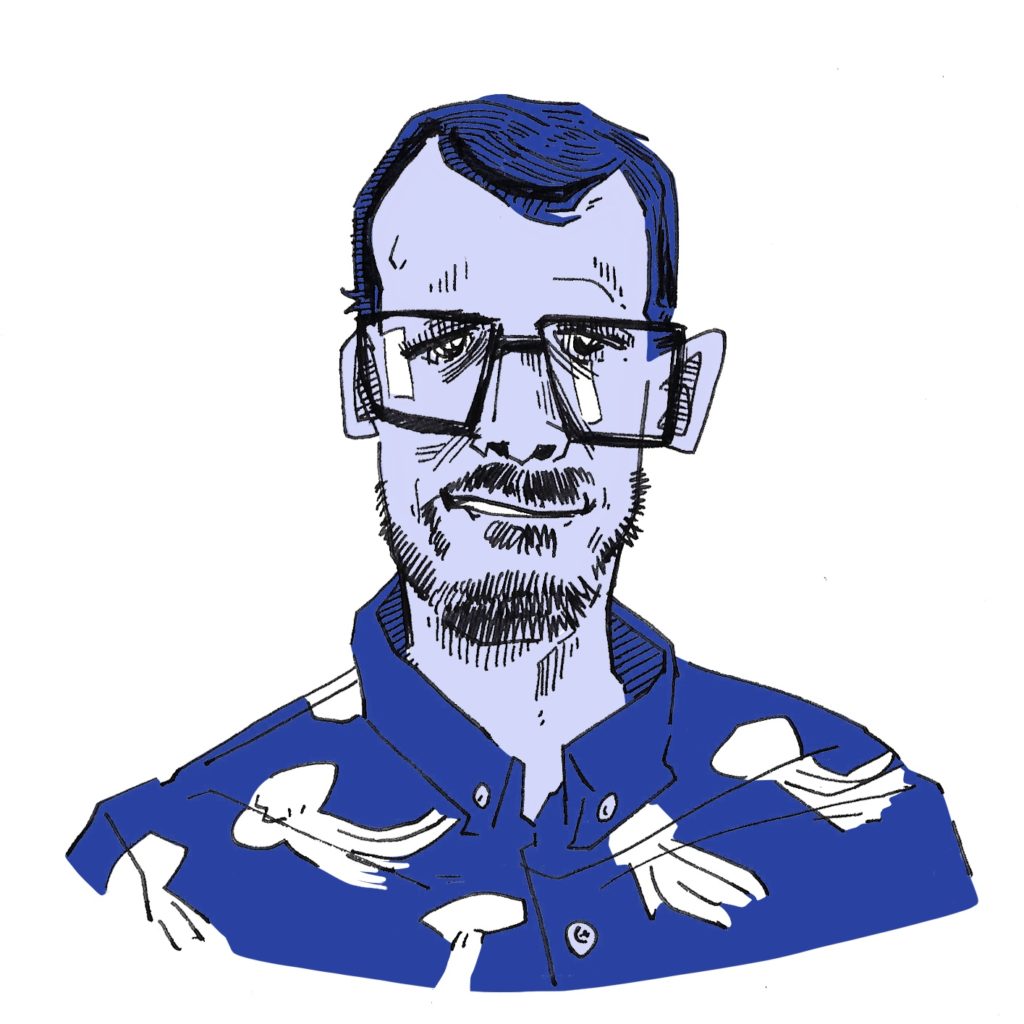
SR : I read a kind of track breakdown of Count Bateman (Frog’s most current album as of publishing) and you mentioned that the song “You Know I’m Down” almost didn’t make the cut, and your brother encouraged you to keep it on there. Could you go into more detail about that story?
DB : So Count Bateman was the music I was making by myself when Tom was getting a little bit less involved and moving away. I didn’t know really what it was–I thought maybe it was a solo album whatever that means and my solo name was going to be Count Bateman. Bateman is my last name and Count Basie is an influence. Yeah, I bought this 8-track half-inch tape machine and I was figuring out how to make music on tape without a computer and [“You Know I’m Down”] was an interesting track. I wrote it and recorded it in a very short amount of time–I don’t think it was more than a few hours. And it just sort of flowed–it was kind of a little fun, tongue-in-cheek a little bit. The lyrics were about someone sort of opening the door to an affair. I thought that was really interesting–there was something kind of large lyrically and something really funny and childish musically and pairing the two. I liked it, but the way that I mixed it–it was one of my first mixing forays and I just put it through my TASCAM mixer and I just mixed it live, which I haven’t done before, and I haven’t done since.
It just sounds really different, at least to me, and it was a little bit less serious. But again Steve–I became a lot closer with my brother Steve–and he became part of the process, helping me with the recordings that I was making. He was really down with some tracks and he wouldn’t let me keep that off the record (laughs). I don’t listen to Count Bateman, I don’t really listen to any of my music that much but I’m glad he kept it on because I do love the first verse lyrically. I think it’s very funny, so I’m glad it’s on there.
SR : How has it been working with family in the band?
DB : Unbelievable. I have two brothers, they’re both a lot taller than me. I think because I started smoking cigarettes when I was sixteen and it stunted my growth. But Steve is the baby–he is I think 28, 29. He’s always had his own style, y’know. He was always really interesting and had a lot of different musical talents. My other brother wasn’t really into music in the same way. Being able to have a really close relationship with your brother–it’s just so beautiful and it’s really one of the biggest reasons why I love the band and I’ve had so much fun keeping it up even though I have my whole life outside of it that’s very, very, very demanding right now. So, it’s not easy. Yeah, it’s been incredible. It’s just amazing. I love it so much.
SR : I saw that you’re relatively a new dad, so congratulations on that! How has having a band and playing music changed since becoming a dad?
DB : Fatherhood–well I had twins, I had two at once. Y’know, I recommend to everyone listening, including you, that if you decide to have children, to try one at first. I think that’s really a better way to do it. You can sort of get your feet a little wet, and then maybe a little bit later, “Oh! I got this kid thing, maybe I’ll try another one,” y’know? This style is just brutal. But it is amazing, and I love my kids so much. But it’s just actually insane. Just the totality–it takes everything you have. But that’s okay, it’s part of life. Part of being human.
As far as the band thing, I had them during COVID, so there wasn’t as much going on with anything. I went remote with my job and I wasn’t really able to do anything, and then I went on pat leave and I was just with them all the time–and that was insane. That was crazy. So I feel for all the moms out there, single moms–Jesus Christ. I’ve sort of been dipping my toe back in–we played one show, two shows, I don’t remember. We’re playing a show in Boston on Friday. It’s just a lot more coordination, and it’s not easy to make it work, not even just because of the time that I spend with my children and working, but because at the end of the day, I’m just like, broken (laughs). So I really have to dig deep to be able to do the same things. Basically, it just makes things a little bit slower–or a lot slower, depending on my mood.
SR : Do you have any fun stories from touring?
DB : Yeah, we played a bunch of shows in the Northeast–I mean we played a sh*tload of shows in NYC obviously, but we have a fanbase in Boston, so I go there sometimes. We have a big fanbase–or at least we did, initially–I think it’s still there, in the UK, and so we toured there, and that was pretty amazing. There’s actually a documentary about it: Kings of Blah it’s called, it’s on vimeo. And I can’t watch the documentary because it embarrasses me too much (SR laughs). There’s one particular part that really embarrasses me and I don’t know why I brought it up because I hope no one watches it, but it sort of encapsulates our lives, me and Tom’s, at the time. It was just such a freaking great time, and we met a lot of people and played a lot of amazing shows. A lot of people showed up, and at that time in our lives, it was right after Kind of Blah came out, we’d play shows in NYC and like four people would show up, and then we went to the UK and there were like, a hundred people. So it was a big, exponential difference. It was really great to be part of.
SR : Yeah, I saw the documentary, and I thought it was really sweet. It was the comments that your wife was making at the end–they were really heartwarming.
DB : It’s a funny thing (laughs). We were just having a blast. Alex was–he’s the director, he’s our friend–he was just taking the camera out all the time, no matter how drunk we were or where we were. So he captured a lot of moments for everyone involved, like my mom was there, my brother Steve was actually there. And those moments–the ones that he loved the most and he kept in were the ones that I wish he had kept out. The only things that I wish were on the cutting room floor–that’s the whole documentary. That’s his sense of humor.
SR : Could you talk a little bit about your songwriting process? How do you go about finding a balance between humor and honest emotion?
DB : Songwriting is an amazing experience that anyone can really get into depending on their proclivity. But it’s not accessible. Really, the way I look at it, you’re sort of like an archeologist. You’re starting with something that’s out there, y’know, whether it’s the vibe of a song or in the past few years I’ve been influenced by non-musical things like a movie or a scene in a movie. There’s this movie called Atame by Pedro Almodóvar that I watched and really–in every scene, I got lost in it. Especially on Count Bateman, a lot of the non-musical stuff–like, how do you create a scene in a song that’s like a movie. You sort of take things that are out there, and then as far as how a song comes together, the way that I do it is on a piano or guitar, I can’t be paying attention to what I’m doing, I’ll just be playing and doing something else at the same time and then something will happen and I’ll go, “Oh! That’s something,” and I’ll try to record it, and then I’ll find it again. Y’know, you just ask it, “What happens?” and it tells you if you ask it right. Hidden inside of each note is a word or a melody. It’s just right there, in there. And you just sort of have to coax it out. And it comes together. (Laughs) That’s how it happens with me at least.
SR : What would you say are some of your biggest inspirations?
DB : Obviously, musically, the stuff that I tend to produce is influenced by the stuff that I came of age listening to and I was always drawn to non-mainstream indie rock in the 90s–like Pavement, but not just Pavement, every single contemporary in that whole scene. Me and my friends were just devoted, and really the way that sort of shaped me–that’s where I came out of as far as a continuum. But then I only listened to hip hop for about six or seven years. Lil Wayne–he’s still one of my favorite artists ever. I’m very influenced by all music, especially music that’s lyrically focused. I think that’s such a beautiful aspect of music, that especially people in genres that hue closer to mine don’t really think that much of. They’re not really that into it. If you’re going to say something, you should say something. It should be meaningful. It’s something that I’ve always taken really seriously.
As far as non-musical stuff, I mean, yeah, I watch a lot of movies. I really love Almodóvar, I really love–I went through a big Kubrick phase. I’ve seen every Hitchcock movie. I really like visual movies. Really it’s not about the plot at all for me, or even the actors. It’s about the world, the visual world. It should be a moving painting. And that’s what is exciting to me in movies, and in books as well. And I think that when I make something that’s good I’m doing that–I’m building a world, and the work that I like and am most proud of is really building that world.
In Count Bateman I was doing something that I didn’t really exactly achieve–I was going for something really, really out there. Sort of 70s, shamanistic with a drum machine, but I only had these tools that make it sound singer-songwriter-y, which held it back from getting it where I wanted it to go fully. But even so, I hinted at it, which is a step. But that’s what I’m influenced by, is the little worlds that people build in art.
SR : I feel like in a lot of articles that I’ve read you’re labeled as Americana, do you feel like regionality plays into the music of Frog?
DB : Well, that’s interesting that you say that. Y’know, I’m an American of course. I’m from New York City, I’m from the New York suburbs. I lived in New York City for 15, 20 years. Part of what draws me into things is the way that people talk and the way that people from different parts of America talk. And part of getting to the place that I think I’m journeying somewhere interesting that I can sort of get lost in and create something that I can get down with is sort of doing something that I don’t know that well. So people think that I’m like, Southern or something. I’m influenced by the way that people talk and sing. The more esoteric, for me, I like it more. Part of creating artistically is creating a version of yourself that you’ve never heard. You’re trying to write something that you’ve never heard or said before or read before. You’re trying to take what you know and do something completely different.
And that’s what’s really fun and exciting about being an artist, is trying to do that. So as far as Americana, I love country music so much, like Hank Williams, I was a super fan. But yeah, my family is from the Midwest, and I don’t know. Just the way people talk there and the way people talk all over in regional dialects sort of hints at something so big. And that’s where I want to go. It’s just something that ends up in the music somehow.
SR : What got you into the sound of Casios and keyboards?
DB : I mean, we had a Casio! I named my band after the Casio. There was this one sound on this one Casio that I found that was called “frog”, and it was unusable. It was the worst sound, you couldn’t use it in any sound. It sounds so bad. And I said, “that’s us.” And that’s how the name started (laughs).
Really, with the tools you’re using, it’s better if you don’t have many options because then you can try and do something different using a limited palette. You need a limited palette–it’s imperative to have. I mean, you’re an artist too, I know that obviously the computer opens up anything, just like in audio. But it doesn’t really help you to do anything because it becomes, “Well, what should I do then?” You have to sort of start somewhere. You need a limited palette in order to really get somewhere. I do. I don’t have willpower (both laugh). Choice is bad! You need to have no choice.
SR : You have a label as well, Tape Wormies. What brought that about?
DB : (Laughs) Is that a label? So, I had this label that I was working with, Audio Anti-hero, it was my friend, Jamie. We were internet pals and then it got to the point where they decided to take a chance and put a little investment and money into Kind of Blah. And Jamie ended up moving to New York City and I got them a job, and they sort of stopped the label that they were working on. So, I decided to just go with myself and hire Jamie to do the PR part of it. This is something that I do because it’s worth doing whether or not I do a good release strategy. The Tape Wormies label is just something that I put a name on for this process. I’m not really interested in the business side of music as an entrepreneur. It’s horrifying. It’s not a “business”. Business in quotes. That’s what that is. It’s not really a label. It’s just something I use to release music on, or I did once.
SR : I like that it kind of goes with Frog, since frogs eat worms–that’s kind of nice.
DB : Do frogs eat worms? I thought they ate flies.
SR : Yeah, they do!
DB : Well Alex, thank God you told me that because now I feel vindicated by my choice of label name.
SR : Is there any context behind the album cover of Count Bateman?
DB : Well, this was an only me album–I wore all the hats. I did everything, I recorded everything. And for better or for worse, I was the only thing that drove it. It felt funny to do a Lil Wayne type, young person picture on it. And my friend Emma took these Polaroids of us when we were 15, and that was a pretty funny one (laughing). It sort of fit with the vibe–it was recorded on tape, and [the picture] looks from another era, I guess it sort of was. Even though that’s scary to think about. It just kind of worked somehow for me, that it was me, pimply and what I was at that age.
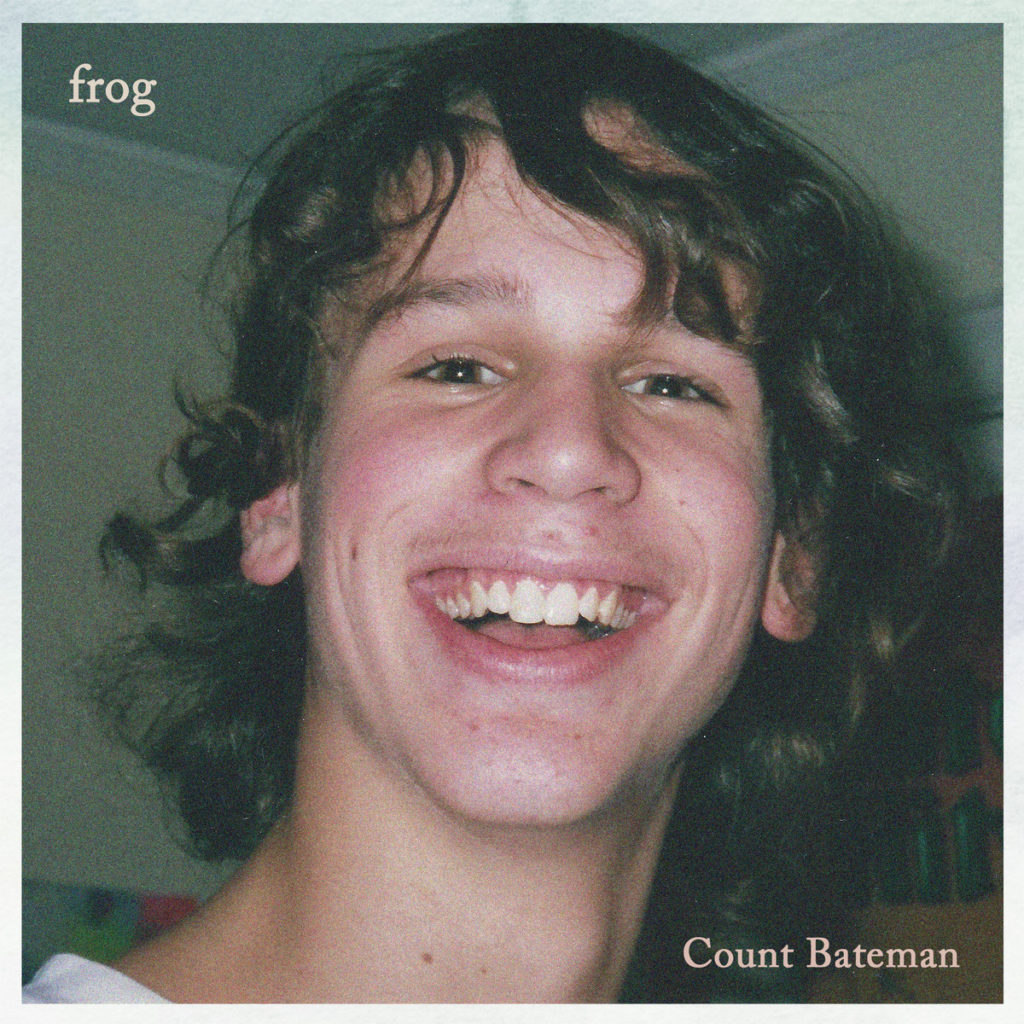
SR : Do you guys have any current projects in the works right now?
DB : Yes! We have a new record. This is my first record recording with Stevie, and I’m so overjoyed with what we’ve been able to do. I mean all of my bands since 2013 have been two people max, and so, it really is an intense sort of relationship. Instead of talking, you talk with music, and really anything that comes out of it is a reflection of the relationship. And it’s just been so amazing, the music that we’ve been making. I am blown away by it. Really excited to finish it–I think we’ve got four songs done, and then a bunch of songs that are somewhere not done.
SR : Do you have a home studio situation or are you recording in a studio?
DB : We have a home studio. Actually, back in the day, I went to college for recording. I didn’t really go to class, I didn’t really learn anything there but I did get into recording gradually by doing it, which is really the only way to learn how to do anything artistically–you just have to do it, and that’s what really got me into recording. And whenever I try to get someone else to help mix or produce, literally, every single time, I have to do it myself. I don’t know–for better or for worse, I want it to be a way. I can’t find someone who can do it so it’s my way but professional, so I just do it my way. And that’s how it’s worked out!
SR : What do you think of the direction of independent music today?
DB : Interesting question. As far as the scene in New York, I don’t really hang out. Y’know, I have kids–if I leave my house, there’s a really really really good reason. I don’t go out anymore, really, unless there’s some occasion that I have to go out to.
Back in the day, when I used to play a lot of shows out there, a lot of the kids were starting their own little DIY spots and it was a really interesting little scene. New York is a tough place to try and play music because everyone’s like, “I grew up somewhere different and now I’m in New York City” so they try and be cool. And so they act a little mean. So it’s a little like highschool kids that don’t think they’re highschool kids anymore, but they still act like kids. I never really was at home in that environment, and I don’t think anyone really thought that I was part of it.
As far as today goes, on the internet, there’s a lot of amazing things about how artists and bands meet each other and collaborate and make music on the internet. One of the biggest bummers is that people seem to gravitate towards really easy wins, and things that are really easy to do–and this is just a general thing but it affects music too–but instead of focusing on trying to do something different musically they become something and look some way and sound some way to be an emo person or what have you. It’s not really about music, it’s more about the world as it is.
As far as the music business goes and Spotify or whatever, everyone complains about it, and rightfully so, but as someone who really tried to be a professional musician in 2009, people don’t remember that. That was so much worse. That was really bad. The music business didn’t exist. The internet destroyed it, and they didn’t understand it. The major labels–they’re really dumb people, and they could never build any sort of new platform that could change everything and make them money again. And I think people hate on it, rightfully so, it’s very difficult to make money but like, for one thing, Spotify doesn’t make any money. They lose money every year, just look at their accounting. They’re a public company. And they pay 70 percent of what they get to whoever owns the rights. Really, the problem with the music business from an independent artist’s standpoint is that there are many more artists than ever before, there are like millions of artists now when there used to be like, 300 artists that released records worldwide. And now there’s a million who release a song–there’s like a million songs released every day. The only way to survive is to do something real that you really think is worth doing no matter if anyone listens to it. The rest probably won’t figure itself out, but at least you’ll feel good about what you did, if that makes sense.
SR : I’ve got one more question for you. What are you most proud of as an artist?
DB : I don’t really like to look back that much on my old art because it’s not productive. It’s alright out, you can’t change it anymore. I guess Kanye did, which is pretty interesting. You could kind of see his artistic process happening on the album everyday. In general, I don’t usually listen to my own music, or at least not the music that’s out.
But as far as albums I like, I love all of them except for Whatever We Probably Already Had It. It’s my least favorite and that’s really only because Tom was leaving and he wasn’t able to be as involved so we couldn’t spend a lot of time on it. And for whatever reason, it takes me a lot of time to start something and find something interesting and really go off on a journey and get something really different than what I was trying to do. And that’s the fun part, where I’m like “wow how the f*ck did this happen, I would’ve never thought this up” just through the process of doing it over and over again. A lot of it is writing songs and then seeing how to record them. And that album is–how we started it–it’s basically our live set. Which is, in itself good, and I like that approach. I love the Ramones and that’s what they do, it’s just that’s not what I dig as much.
So as far as the albums I like most, I love Kind of Blah even though I was kind of bummed out about how that turned out in the moment because I was going for something different and my production skills weren’t able to get it to the place I wanted it to get to. But when you listen back now, it works anyway a little bit. I like that one. I like Count Bateman. I guess the thing that I can say I’m most proud of is that I have two kids and a mortgage, a full time job, and I’m still doing it. So, I don’t know how that happened. I actually can’t believe that that happened. That’s I guess really the achievement, is that I kept at it.
